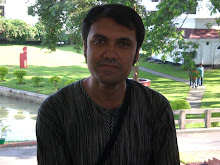
- Find this article at:
- http://www.time.com/time/world/article/0,8599,1866323,00.html
TIME in partnership with CNN
Sunday, Dec. 14, 2008
Bangladesh Court Orders Parents to Free Daughter
(DHAKA, Bangladesh) — A 33-year-old Bangladeshi doctor whose family allegedly held her captive for months at home and in a mental hospital will return to work in Britain after a court in Dhaka ordered her parents to release her Sunday, the woman's lawyer said.
The case of Humayra Abedin stemmed from Britain's new Forced Marriage Act, which took effect last month and gives British courts the power to compel someone to reveal the whereabouts of a person believed to be at risk of being coerced marriage.
The Bangladesh High Court ordered Abedin's parents Sunday to release her and return her passport, said her lawyer Sara Hossain. She will be under the care of the British High Commission in Dhaka until her departure within four days.
"She's free to go. She's been set at liberty and she wants to return to the U.K.," Hossain said. "We're delighted with the result. The rights of a Bangladeshi woman have been protected as they should be."
The Bangladesh authorities honored a British court order under the Forced Marriage Act, although the law is not enforceable in Bangladesh, Hossain said.
Abedin trained as a doctor both in Bangladesh and at Leeds University in northern England and plans to become a family physician in London.
She traveled to Dhaka in August in response to calls that her mother was ill, but following her arrival was confined against her will by her parents, Hossain said.
Abedin sent an e-mail to a friend saying she needed help, lawyer Anne-Marie Hutchinson, who got involved in the case on Hossain's request, earlier told The Associated Press in London.
Hutchinson intervened and the British High Court, unaware of Abedin's whereabouts, issued an order on Dec. 5 under Britain's new Forced Marriage Act asking Abedin's relatives in London to show her to a woman's organization or to the authorities.
Meanwhile, a petition by a local human rights group in Dhaka prompted the Bangladesh High Court earlier this month to order her parents to produce her on Dec. 14 to ascertain her condition, Hossain said.
Hossain said Abedin was held captive at her parents' home in Dhaka, but when lawyers and police wanted to talk to her, she was at a mental hospital in Dhaka and another outside the capital.
In a telephone interview at the time, Abedin's father, Mohammad Joynal Abedin, said she was being treated for mental illness and denied allegations she was held captive to force her into an arranged marriage.
Bangladesh High Court Judge Syed Mahmud Hossain said Sunday after the ruling that he would not reveal Abedin's testimony in the closed-door hearing because it contained "objectionable elements."
"She requested the court not to put her parents in trouble because of what they did to her," the judge said. "But I am saying what you (the parents) have done to her is not acceptable. If there's any further problem, you will be in big trouble."
Abedin has insisted that no charges be filed against her parents, Hossain said.
The Forced Marriage Act gives British courts new powers to issue protection orders that can stop intimidation or violence, prevent someone from having to go abroad, and compel someone to reveal the whereabouts of a person believed to be at risk.
Forced marriages are prevalent between female British citizens of Asian descent and Asian men. Typically, they take place abroad after the woman is told by family that she is traveling to the country to visit relatives.
In the first nine months of 2008, Britain's Forced Marriage Unit handled more than 1,300 cases.
The unit said that nearly 85 percent of the cases had female victims, and the majority involved families of Pakistani, Indian, and Bangladeshi descent. About half involved minors.

No comments:
Post a Comment